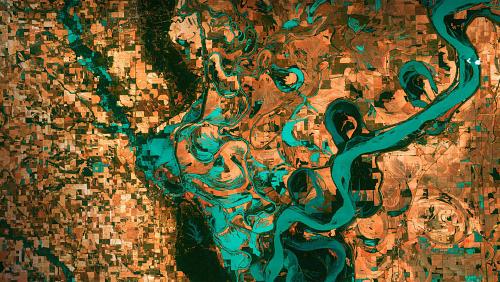Extreme Weather: How Climate Change is Impacting Our Environment
Extreme weather events have become more frequent in recent years, with devastating hurricanes, intense heatwaves, and destructive wildfires becoming more common. These extreme weather events are not only a threat to human lives and infrastructure, but they also have a significant impact on the environment. It is becoming increasingly clear that these extreme weather events are a result of climate change, and it is crucial to understand the impact they have on our environment.
One of the most visible impacts of extreme weather events is the destruction of natural habitats and loss of biodiversity. Hurricanes and wildfires can decimate forests, while heatwaves can cause droughts and water shortages, leading to the loss of plant and animal species. This not only disrupts the delicate balance of ecosystems but also has long-term effects on the environment and the climate in the affected areas.
Moreover, extreme weather events can also lead to soil erosion, air and water pollution, and the spread of diseases. For example, heavy rainfall and flooding can wash away topsoil, leading to the loss of fertile land and threatening agricultural production. Similarly, wildfires can release harmful pollutants into the air, affecting air quality and public health. Furthermore, warmer temperatures and higher humidity can create favorable conditions for the spread of diseases, impacting both human and animal populations.
The impact of extreme weather events on the environment is not limited to natural ecosystems. They also have significant effects on human infrastructure, including transportation networks, buildings, and energy systems. For instance, flooding can damage roads and bridges, while heatwaves can lead to power outages and strained energy resources. Furthermore, extreme weather events can also lead to economic losses, as they disrupt agriculture, tourism, and other industries, impacting local and national economies.
Addressing the impact of extreme weather events on the environment requires a multi-faceted approach. This includes efforts to reduce greenhouse gas emissions and mitigate the effects of climate change, as well as investing in resilient infrastructure and early warning systems to help communities better prepare for and respond to extreme weather events. It is also important to promote sustainable land use practices, protect natural habitats, and support biodiversity conservation to build resilience in the face of extreme weather events.
Ultimately, it is crucial to acknowledge that the impact of extreme weather events on the environment is a pressing issue that requires urgent action from governments, communities, and individuals. By taking steps to address climate change and mitigate the impact of extreme weather events, we can protect our environment, reduce the risk to human lives, and build a more sustainable and resilient future for our planet.







